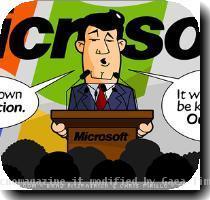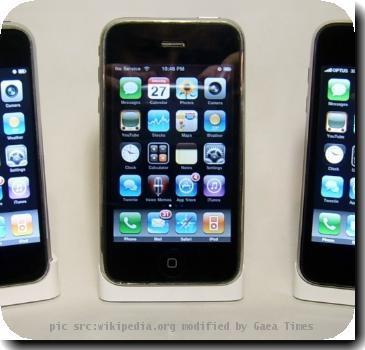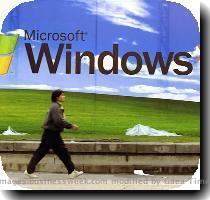4th quarter’s fast economic pace likely to fade as joblessness holds back consumer spending
By Jeannine Aversa, APFriday, January 29, 2010
4th quarter’s fast economic pace likely to wane
WASHINGTON — The economy boomed at the end of 2009, growing at the fastest rate in more than six years. Now if only it could keep it up.
The economy expanded at an annual rate of 5.7 percent in the fourth quarter, the second straight quarter of growth. But analysts warn it’s unsustainable.
Consumer spending, chilled by double-digit unemployment and scant wage gains, remains weak. And the benefits of government aid and higher company output to feed stockpiles will dwindle.
Many analysts predict gross domestic product will expand at a rate closer to 2.5 to 3 percent in the current quarter and 2.5 percent or less for the year.
That won’t be enough to significantly reduce the unemployment rate, now 10 percent. In fact, most analysts expect the rate to keep rising for months and to remain close to 10 percent through year’s end.
To drive down the jobless rate by just 1 percentage point this year, the economy would have to grow by 5 percent for the whole year. No one thinks that will happen.
Until companies step up hiring and raise pay, consumers will feel squeezed. For all of last year, workers’ compensation rose by the smallest amount on records going back more than a quarter-century.
“Consumers are walking, not running,” said Ken Mayland, president of ClearView Economics.
Roughly two-thirds of the quarter’s growth came from increased manufacturing as businesses drew down their stockpiles of goods at a slower rate. But companies will eventually let those inventories fall again unless consumers — who account for about 70 percent of the economy — spend more.
Unlike past rebounds driven by the spending of ordinary shoppers, this one appears to hinge on spending by businesses, foreigners and — until it runs out — government stimulus.
History suggests this isn’t the recipe for a strong recovery. In the early 1980s, businesses led a recovery from recession. Their inventory building accounted for 74 percent of growth in the first quarter of 1981.
But then the economy contracted. A drop in inventories was a key reason why. The economy fell into a second, more severe recession in 1981 and 1982. The unemployment rate hit 10.8 percent, the post-World War II high.
Is another “double-dip” recession likely now?
Economists say the possibility is low. Businesses are expected to spend enough to at least sustain the recovery even as the benefits of government stimulus and inventory replacement diminish. But the risk remains. Some fear growth could slow sharply or even stall later this year as the government winds down its $787 billion stimulus package of tax cuts and increased spending.
“That’s why there’s so much hand-wringing right now,” said Brian Bethune, chief U.S. financial economist for IHS Global Insight. “Can the economy really sustain this? That’s the big question mark sitting out there.”
The economic weakness poses a threat to President Barack Obama’s Democratic Party heading into congressional elections this fall. Obama on Friday urged Congress to move ahead on tax incentives to create jobs, calling the 7.2 million of them wiped out by the recession, “a terrible human tragedy.”
Even companies like Procter & Gamble Co., maker of consumer staples like Tide laundry detergent and Pampers diapers, are confronting the reality of reluctant shoppers. The company expects sales growth to return to pre-recession levels in the coming quarter — but in part because it’s yielding to frugal shoppers, cutting prices on some of its premium products.
Business spending on equipment and software last quarter grew at the fastest pace since early 2006. Economists think such spending will continue rising, though at a slower pace.
Consumer spending is also expected to creep ahead — aiding the recovery but not leading it.
Many consumers are spending more freely on souped-up cell phones, electronic-book readers and sleeker computers.
Rising demand for iPhones and Macintosh computers powered Apple Inc. to its most prosperous quarter in its 33-year history, and sales are expected to rise again during the first three months of the year. Intel Corp., the world’s biggest maker of computer microprocessors, and Microsoft Corp., the leading maker of computer software, are forecasting renewed household and business spending on personal computers.
Still, the overall news for 2009 wasn’t good.
Friday’s report showed economic activity for the year fell by 2.4 percent — the sharpest drop since 1946. It was the first annual decline since 1991.
If gains from inventories and exports are taken out, the economy last quarter grew at just a 1.7 percent pace.
But the fourth-quarter’s pickup did benefit companies across the supply chain.
Ford Motor Co. this week reported higher fourth-quarter sales and its first annual profit in four years, as it recovers from the devastating downturn the auto industry.
Ford’s “recent success has benefited us,” said Tom Schumann, general manager of EC Kitzel & Sons Inc., a small cutting tool fabricator based in Cleveland, Ohio.
The company, which has 30 employees, bought a new machine tool in December and hired a new worker to run it, the company’s first hire since last spring. Still, many of the company’s suppliers are struggling.
“I’m not totally convinced we’re out of the woods yet,” Schumann said, referring to the economy.
AP Economics Writer Martin Crutsinger in Washington, AP Technology Writer Michael Liedtke in San Francisco and AP Business Writer Dan Sewell in Cincinnati contributed to this report.
Tags: Consumer Spending, Labor Economy, North America, Recessions And Depressions, United States, US Economy, Washington
|
January 30, 2010: 11:36 am
The most valued gold are the pebbles dropped into the placid waters by pebble-droppers who make waves and wakes with their individual ingenuity, as cited in Save Pebble Droppers & Prosperity on Amazon and claysamerica.com. |



clay barham